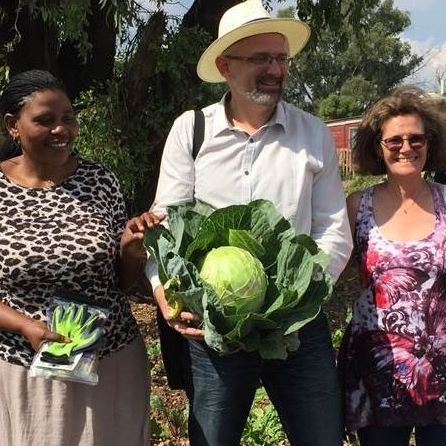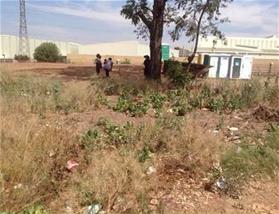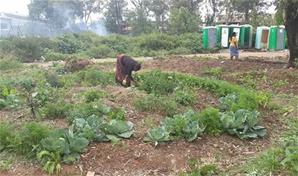
Banner

Give it up for the women of the UJW
OWN CORRESPONDENT
They saw poverty, raw sewerage flowing in the area and many unemployed people. However, they also saw an opportunity for growing vegetables in an open area alongside the shacks.
 Some of the residents approached, expressed interest in learning how to start a vegetable garden. UJW paid “Food and Trees for Africa” to do an assessment, and give the residents two days of training – including how to make compost.
Some of the residents approached, expressed interest in learning how to start a vegetable garden. UJW paid “Food and Trees for Africa” to do an assessment, and give the residents two days of training – including how to make compost.
RIGHT: This is how the garden looked before – in November 2016
Although the organisation had said that there was little prospect of success, UJW decided to persevere with the project. Gardening tools, lengths of hosepipe and seeds were bought by the women’s organisation and the month of January saw the first “harvest”.
 Members of UJW and those who had contributed toward the project were amazed to see the magnificent cabbages, spinach and other vegetables which the enthusiastic women living in the settlement had grown.
Members of UJW and those who had contributed toward the project were amazed to see the magnificent cabbages, spinach and other vegetables which the enthusiastic women living in the settlement had grown.
LEFT: This is how the garden looks now – in January 2017
Currently tomatoes, peppers, brinjals, cabbages, onions, potatoes, beans and mealies are growing. The vegetables will be used to help feed the community and it is hoped that some will be sold.
Lisette Datnow, the Garden of Hope’s project manager, said there are many challenges that have been overcome and many more to address, such as the rat problem. She added that she feels very privileged that she and the UJW members have been able to improve the lives of those working so hard to make the garden a success.

ABOVE: UJW members Lisette Datnow, Lucelle Salomon, Di Levine and Leora Berger; Alex Woolfe (Edible Organics), gardeners Momphelo Zozo, Patricia Makhohliso, and Prudence Mgomezulu; and Johannesburg City Councillor Neuren Pietersen




